The 2020 U.S. census will take a closer look at the racial make-up of America – asking for even more specifics about ethnicity.
For one racial group in the Pacific Northwest, the census offers a chance to build on the success of the last go-round – a survey that showed a surprising result when it came to the fastest growing population in Portland.
“For a long time, a lot of people thought that the Asian and Hispanic populations have been the fastest growing within the city of Portland,” said Nick Chun, a demographer at Portland State University. "It’s actually the Native Hawaiian population."
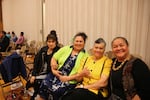
Congregants gather at The Church of Jesus Christ of Latter-day Saints Rose City Ward in Portland for the Relief Society celebration
Erica Morrison / OPB
The number of Pacific Islanders and Native Hawaiians grew by 5.4 percent in the last census – double the rate for people of Asian origin and even more than the double the rate of Latinos.
And within that population, Portland is seeing especially rapid growth among the Tongan population.
Tongans began coming to Oregon in the late 1970s. Much of that migration was by word of mouth – as one family settled, it would tell another and another and another.
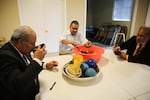
Community leader Kolini Fusitu'a along with other men gather for a Kava Circle after service at the Lents Tongan Fellowship of the United Methodist Church
Erica Morrison / OPB
Climate change, which is eating away at the islands, is hastening the population shift.
But much of the evidence of the Tongan migration was anecdotal until the 2010 census. For that count, community organizers and advocates for immigrant communities worked hard to increase the number of people who actually responded.
Kolini Fusitu’a, a program coordinator for the nonprofit IRCO, knocked on doors, spoke at church meetings and attended cultural gatherings to spread the word. The U.S. Census Bureau also aimed marketing at Pacific Islanders with posters of a girl in traditional island dress and a celebrity ocean navigator from the Micronesian island of Chuuk.
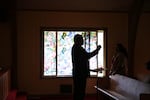
Suliasi Laulaupeaalu directs the choir on a Sunday afternoon at the Lents Tongan Fellowship of the United Methodist Church
Erica Morrison / OPB
Getting Tongans and other islanders to answer the census meant overcoming some fear.
“You have this white person knocking on the door, they have a name tag, a clipboard and a pen,” Fusitu’a said. "If they are not a bill collector, maybe it’s the police.”
Census results matter, especially to small, growing populations that may need special services to assimilate or make a home in a new country. Census results help determine how billions of dollars in federal money are doled out each year.
In 2020, the federal government will ask for even more detailed information: Not just where you’re from, but where your family originated. That may include breaking down the Pacific Islander and Native Hawaiian populations into individual ethnic subcategories, such as Fijian, Samoan and Tongan.
“We’ve been seeing this trend for a while, people are seeing these categories of ‘Asian,’ ‘white,’ ‘African American,’ and they’re not identifying with it. So they’re checking some other race,” Chun said. “So the census is really losing out on a lot of precision.”
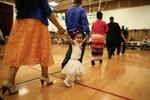
Congregants kick off the evening celebration with a traditional Tongan march around the auditorium at The Church of Jesus Christ of Latter-day Saints Rose City Ward in Portland
Erica Morrison / OPB
The 2020 census will also ask respondents if they’re U.S. citizens. Advocates for small immigrant populations, such as the Tongans, worry about the impact that might have on their efforts to get more people to answer the survey.
“It could produce a very large undercount,” Chun said.
The city of Portland is trying to increase, not decrease, the public face of the Tongan community. This summer, the city’s police and parks bureaus are holding their second annual Tonga Day celebration. It will include food, dance and other cultural traditions.
It’s another way of reminding the rest of Portland that Tongans exist – even as advocates strive to remind Tongan Portlanders that the census matters to them.
“We like to say, you don’t count unless you’re counted,” Chun said.
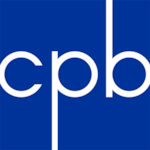
Sharing America: A Public Radio Collaboration
Erica Morrison is part of the public radio collaborative “Sharing America,” covering the intersection of race, identity and culture. This new initiative, funded by the Corporation for Public Broadcasting, includes reporters in the Northwest and Hartford, Connecticut, St. Louis and Kansas City. You can find more "Sharing America" coverage here.

